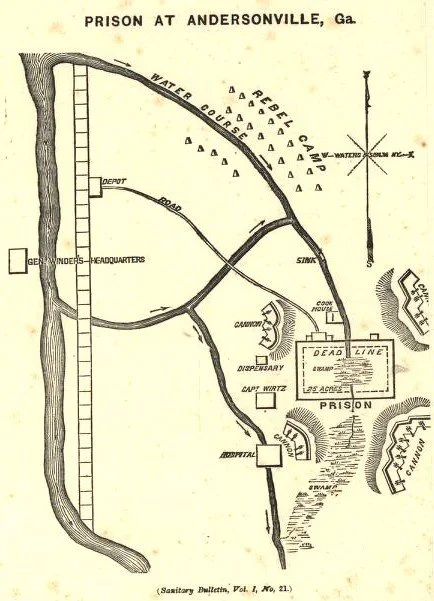
Starvation and Bad Treatment
When the Civil War began in April 1861, the United States had only a small standing army. Over the next year, volunteer regiments were recruited from all the Northern states. One such regiment was the 103rd Pennsylvania Volunteer Infantry, which was established in Kittanning, Pennsylvania, northeast of Pittsburgh, and enlisted men from the midwestern section of the state (Dickey 1910). Five of my relatives were among the men who volunteered for this regiment. These included my four-times great-grandfather Reese Thompson, who was nearly 50 years old but told the army he was 43, his 14-year-old son Milton, and his nephew and namesake Reese Shay.

Refugees in London
When I think of early immigration to the United States from the part of Europe that is now Germany, I tend to think of German settlers in Pennsylvania, many of whom were religious dissenters like the Mennonite ancestors I have written about in a previous post. As a result, I was quite surprised to learn that my seven-times great-grandfather, Johann Henrich Krantz, arrived in New York in 1710 and settled along the Hudson River in Ulster County. As I learned more about why he arrived when and where he did, I came to see many parallels between his experience and that of refugees and asylum seekers today.

At Home in the Arctic
Some time ago, I wrote about my great-grandfather’s cousin Ethel Barnhart and her husband William Van Valin, who in 1911 became teachers in a school for Alaskan Natives run by the U.S. government. After four years, Will and Ethel returned to the continental United States, bringing with them a large collection of Native Alaskan artifacts, many of which they sold to the Penn Museum, a Philadelphia anthropological museum affiliated with the University of Pennsylvania. A few years later, when the Penn Museum was offered funding for a research expedition to northern Alaska, museum staff turned to Will to lead the effort.

Heresy, Whaling, and Coffee
Any of my friends will tell you that I love Starbucks coffee. I’m a coffee fanatic, in general, but I’ve always particularly enjoyed Starbucks. While in Seattle one time, I even visited the original location. So when I discovered that I am descended from a Starbuck, I was delighted and intrigued.
